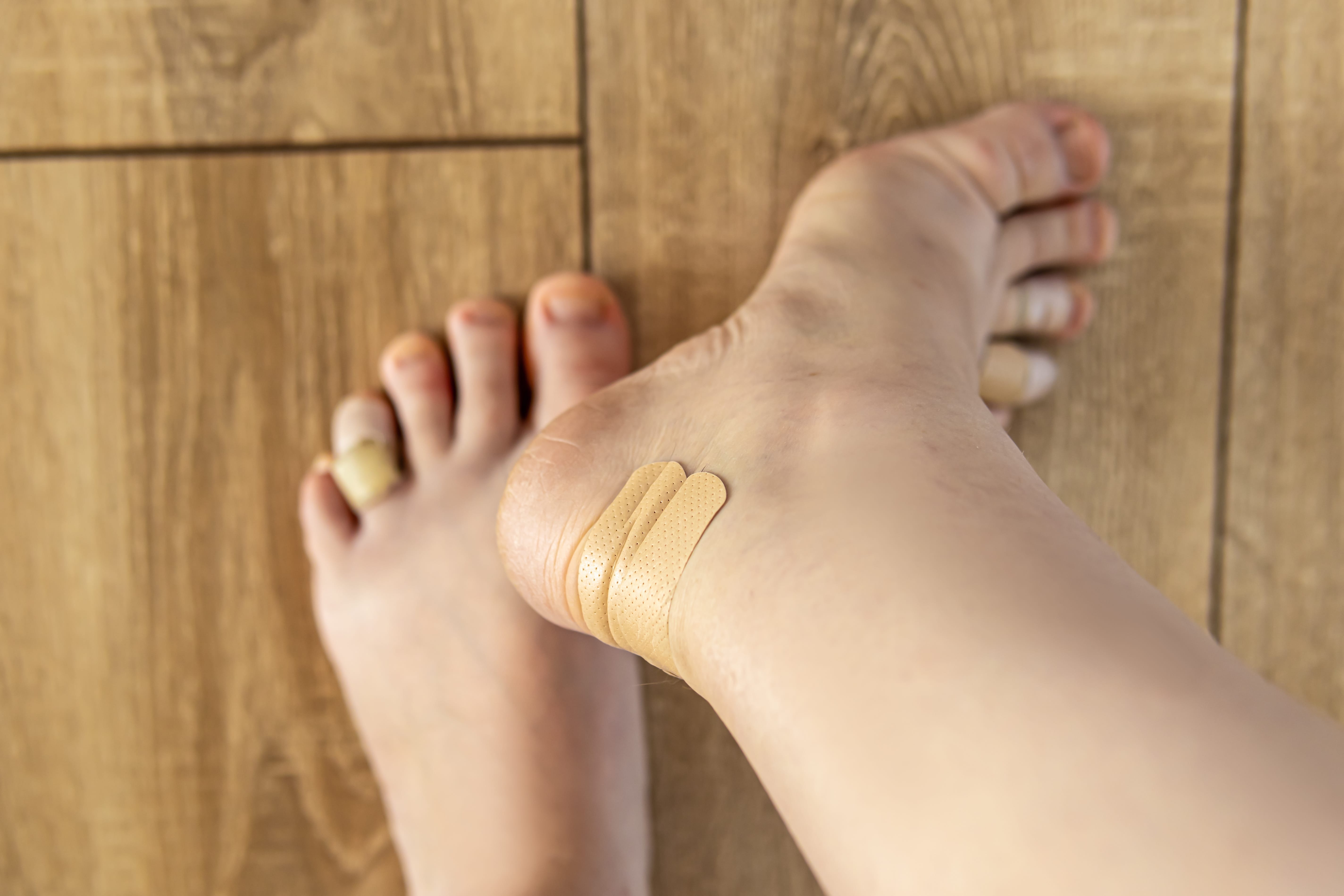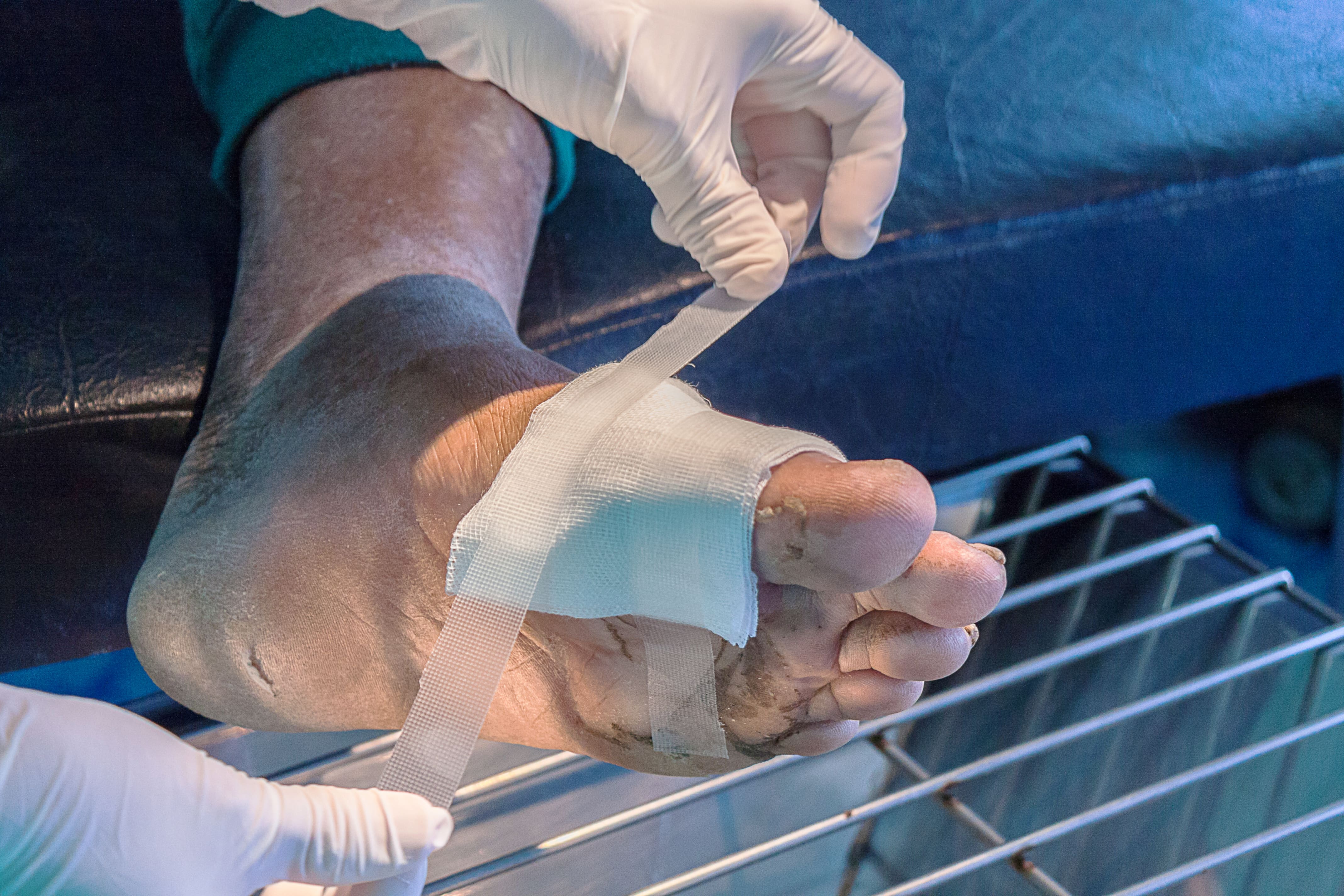Conditions
Pressure Ulcers
Compassionate and Advanced Wound Care
Pressure ulcers, often called bedsores or pressure sores, develop when prolonged pressure on the skin reduces blood flow and damages the tissue. They are especially common in people who spend long hours in bed, use a wheelchair, or have limited mobility. Without proper attention, these wounds can become painful, infected, and slow to heal. At our clinic, we offer specialized treatment for pressure ulcers, focusing on comfort, healing, and long-term prevention.

Understanding Pressure Ulcers
These wounds typically form over bony areas such as the heels, hips, ankles, and tailbone. At first, they may look like simple skin irritation, but if left untreated, they can progress into deeper tissue injuries that are much harder to manage.
Pressure ulcers are most common in individuals who cannot easily reposition themselves, have poor circulation, or live with conditions like diabetes or neuropathy that affect healing. Older adults are also more vulnerable because of thinner, more delicate skin.
Recognizing the Signs
Early signs of a pressure ulcer include persistent redness, warmth, or tenderness in a specific spot on the skin. As the ulcer develops, the area may become painful, break open, or form blisters. In more advanced cases, the wound can extend into the muscle or even bone. Because these sores can worsen quickly, seeking professional care as soon as changes are noticed is critical.
Our Approach to Treatment
When you visit our clinic, we begin with a careful evaluation of the wound to determine its stage and whether infection is present. Treatment often involves relieving the pressure on the affected area by adjusting how a patient sits or lies, or by recommending cushions and mattresses designed to protect the skin.
The wound itself is cleaned and, if necessary, debrided to remove damaged tissue. We then apply advanced dressings that keep the environment moist and reduce the chance of infection. If bacteria are detected, we address them promptly with targeted treatments to protect the surrounding tissue. Because nutrition plays a key role in skin repair, we also discuss dietary support that can speed recovery. Throughout the process, we monitor healing closely and adjust the care plan as the wound improves.
Our goal is simple: to help you heal as comfortably, safely, and quickly as possible, while giving you the tools to prevent future ulcers.
Why Professional Care Matters
While it may be tempting to try treating a pressure ulcer at home, these wounds often need specialized attention. Professional care not only promotes faster healing but also prevents complications like serious infections or hospitalization. Patients who receive treatment in our clinic benefit from early detection, modern wound care technology, and compassionate guidance tailored to their unique situation.
Prevention and Long-Term Support
Treating a pressure ulcer is only part of the solution—preventing future wounds is just as important. We help patients and caregivers understand how to reduce risk through regular position changes, attentive skin care, good nutrition, and the use of supportive surfaces. With the right knowledge and tools, many pressure ulcers can be avoided altogether.
Why Choose Our Clinic
We know how overwhelming it can feel to care for a pressure ulcer. Our team is here to provide more than just treatment—we offer reassurance, education, and long-term support. With years of experience in wound care and access to advanced techniques, we are committed to helping patients heal comfortably and regain their quality of life.
Take the Next Step
If you or someone you love is living with a pressure ulcer, early care is essential. The sooner a wound is treated, the better the outcome.
Contact our clinic today at (717) 620-8225 or schedule an appointment and learn how our expert wound care team can help you heal.

